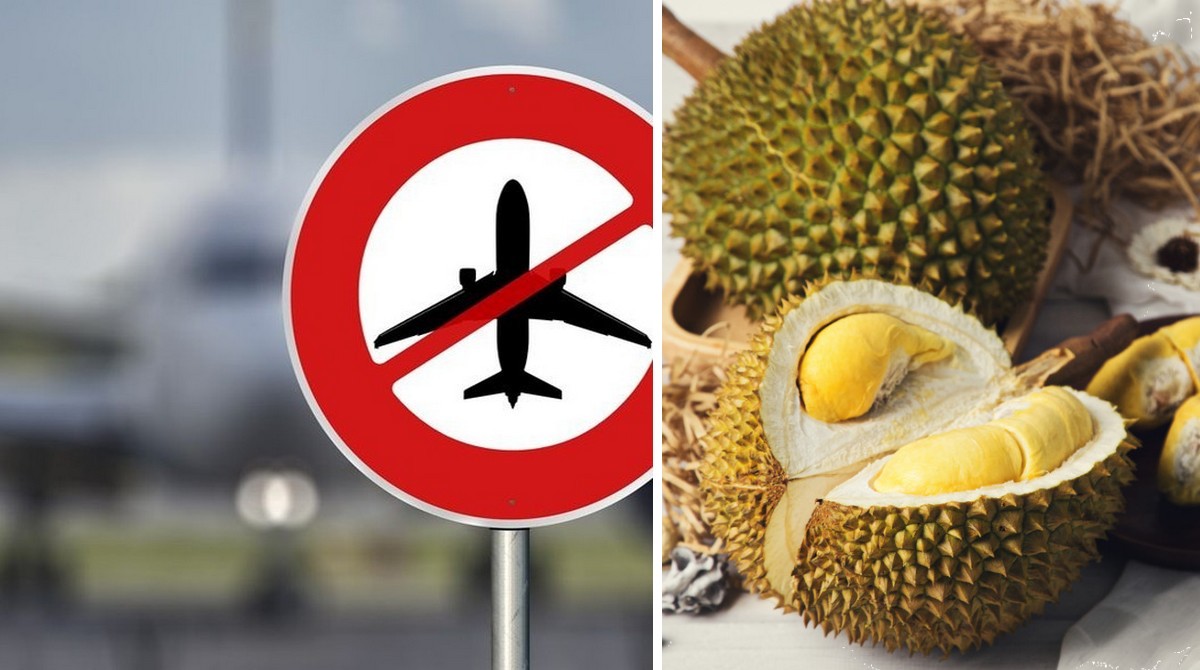Usually, air carriers are loyal to tourists and allow many types of goods to be carried on board – in hand luggage and the baggage compartment. However, there is one fruit that is banned from almost all airlines. This is durian. The British newspaper The Sun reminded tourists about this.
Durian is quite popular in some Asian cuisines, but its smell is very pungent, which caused the ban. For example, China Southern Airlines even officially included it in the list of prohibited products. And here is another example. New Zealand’s largest air carrier, Air New Zealand, stated: “Durian fruits cannot be transported in hand luggage or luggage.”
The exception is the Philippine low-cost carrier Cebu Pacific, which says it will allow passengers to bring fruit on board, provided it is stored in the luggage compartment and not in the cabin. “Fragrant or unpleasant-smelling fruits (for example, durian) are accepted for transportation only as baggage,” the airline’s website said. Others also allow a specific fruit on board, but on the condition that it is sealed.
Durian has caused problems for airlines before, and its smell has repeatedly caused delays and disruptions of flights. So, angry passengers on board an Indonesian plane carrying fruit almost fought with the flight attendants because of the stench, demanding to remove the fruit from the plane. At that time, there were about two tons of durian on board Sriwijaya Air, which was traveling from Jakarta to Benkula. As a result, the airline made concessions and unloaded the durian shipment. As a result, the flight took off an hour later than scheduled.
“When I got on the plane, I could already smell the durian. I complained to the flight attendants but they told me just to fill out a complaint form. I shouted to the other passengers, “Who on this plane wants to fly with such a sickening smell?” They all chanted in response: “Not us!”, Amir Zidan, a tourist on this flight, recalled on his page on social networks. Later, Sriwijaya Air still defended its decision to carry smelly fruit on board.
However, in the confined space of an airliner, passengers often feel disgusted by specific aromas. Recently, a passenger was subjected to passive-aggressive comments after eating a burger he bought at the airport. He posted his story on the Reddit forum to find out if he was right when he decided to eat it in the cabin of the plane.
“This is happening right now, and the woman sitting next to me is looking at me with ‘dagger eyes’, making passive-aggressive comments under her breath. I have an eight-hour flight with a short layover. The first flight served only a small packet of crackers, and the second flight will have the same. Once I got to the boarding gate, I had enough time to order food, but not eat it. I contacted the employee at the boarding gate to see if I could take food on board and she happily assured me that I could. I went and bought a burger, fries and a drink. The woman sitting next to me told me that she doesn’t eat meat or fried food and the smell of my burger and fries made her sick. At first, I ignored her and continued to eat, but she complained louder and louder. I know I’m right when it comes to airline rules, but the smell of spicy food in an enclosed space is perceived differently by others and she’s still looking at me,” the traveler posted.
Some commentators sided with the hungry tourist. “This is an airplane, not this woman’s private living room. I can’t believe how rude some people are on airplanes,” one of them supported the author.
Previously, flight attendant Shani Peralta told tourists what foods should not be taken on board the plane: “Those who bring specific food on board, such as egg salad or tuna sandwiches, are in the minority.” At the same time, in her opinion, passengers do not suspect that they have done something wrong.

